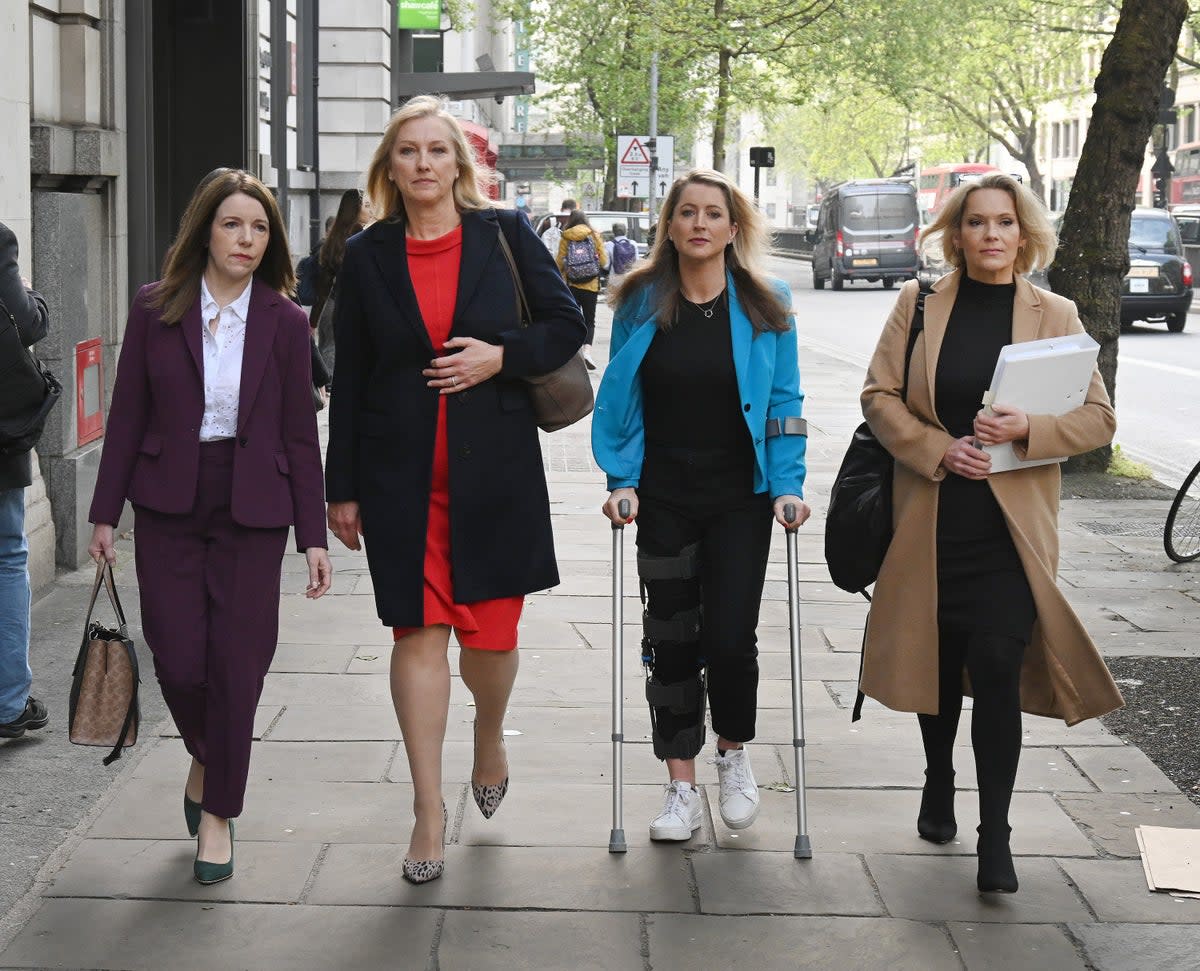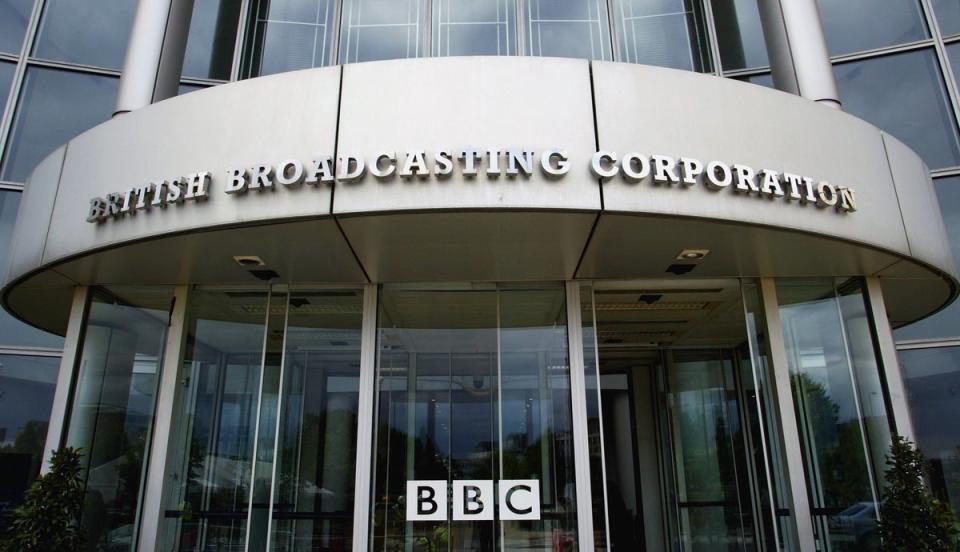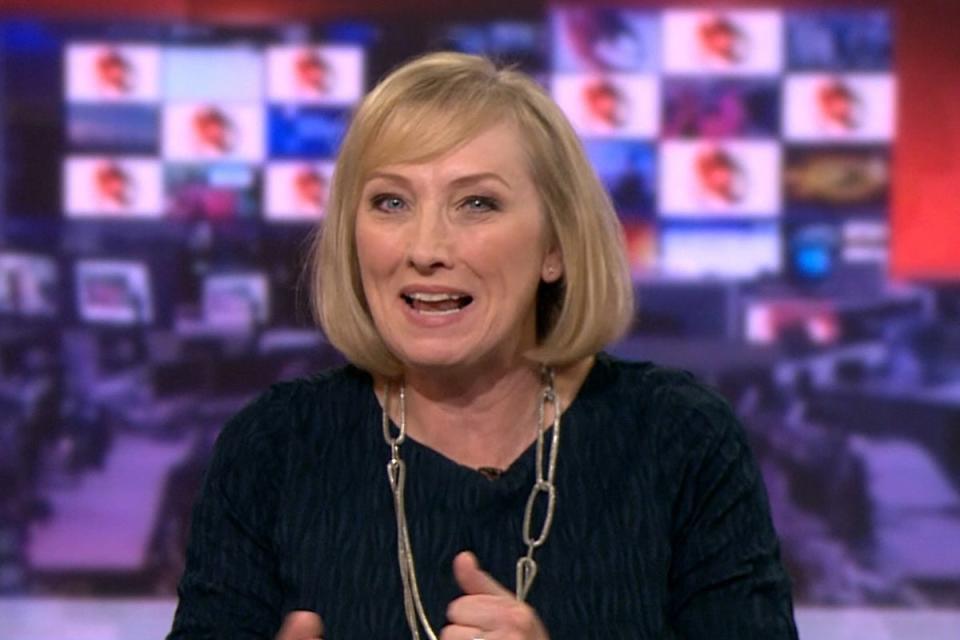Female presenters lose equal pay claim in legal challenge against BBC

Martine Croxall and three other senior BBC journalists have failed in their bid to include equal pay as part of wider legal action against the broadcaster.
However, separate claims for sex and age discrimination will go ahead, an employment tribunal ruled.
Croxall, Karin Giannone, Kasia Madera and Annita McVeigh launched the claim against the BBC, accusing the broadcaster of a “sham recruitment exercise”.
The presenters, all between the ages of 48 and 55, claim they were snubbed for chief presenter roles following the merger of the BBC’s News and World News channels.
Their claim says they failed to land top anchor roles due to a recruitment exercise “rigged” in favour of certain senior presenters before applications opened.
This is a claim that the broadcaster vehemently denies, and the BBC says it has conducted an internal review into the matter.

A spokesperson for the BBC said after the ruling: “We are pleased with the result and that the tribunal has accepted our position. We will not be commenting further at this stage.”
A two-day preliminary hearing in central London ended on Thursday, and a three-week tribunal to hear the claims in detail will be held in March 2025.
The BBC had opposed the cases being heard jointly, but Croxall, McVeigh, Giannone and Madera have been allowed to put their claims forward as a group.
The four presenters released a joint statement on being allowed to have their claims heard together, saying: “We are pleased the tribunal has agreed our four discrimination claims should be heard together, claims the BBC’s lawyers tried to split, which would have necessitated eight hearings at great additional expense to the licence fee payer.
“We remain committed to seeking equal pay despite the BBC’s lawyers relying on a novel argument to prevent our claims progressing.
“We await the judge’s written ruling, to which we will give further consideration.”
Judge Sarah Goodman ruled that the claim related to equal pay would not be included because the presenters had existing equal pay settlements with the BBC.
Croxall, who has been with the BBC since 1991 and has worked as a chief presenter with the BBC News channel and BBC World News since 2001, said that she would not have taken the settlement had she known it would prevent her from making future claims.
She told the tribunal on Wednesday: “The BBC grinds you down on pay, it breaks you. You don’t feel like you can continue with it in the moment and that’s why I’m here.”
The presenters allege that they have not been paid equally compared with their male counterparts since February 2020 and there was a gap of about £36,000 a year in pensionable salary as of February 2023.

In their witness statements, which appear to be similar, the women said: “I am one of five female chief presenters with BBC News, aged 48 to 54, at the time of the detriments, who have suffered (direct/indirect) discrimination on the grounds of age and sex, victimisation for union rep activities, victimisation for carrying out protected acts (bringing equal pay claims), harassment (violation of dignity, creation of a hostile, degrading, intimidating environment in the workplace, causing us to suffer ill-health and reputational damage).
“This was because of a sham recruitment exercise where our jobs were closed even though the redundancies were not genuine as the work still exists.”
BBC director general Tim Davie said the broadcaster was attempting to work towards a “fair resolution” for the five women, who were asked to reapply for one of two new chief presenter jobs.
They were then told that if unsuccessful, the remaining three could be offered a new role as correspondents – an effective demotion from their previous positions as senior journalists.
Their witness statements add: “Four of us have been demoted, three are facing a sizeable pay cut, with a fourth having had her pay cut for half of her job.
“No men and no women younger than us suffered these detriments.”
They described themselves as having been “set up to fail in the jobs process” which saw them being denied work while less experienced freelancers and casuals have covered shifts they could have done.
Being kept off the air happened against their will and took place amid press and social media speculation about their futures, they added.
Since then, McVeigh has taken up two chief presenter roles, but the other three presenters affected remain off-air.
Croxall, still employed by the BBC but without a set role, has taken time out of work to travel while receiving her full pay package.


